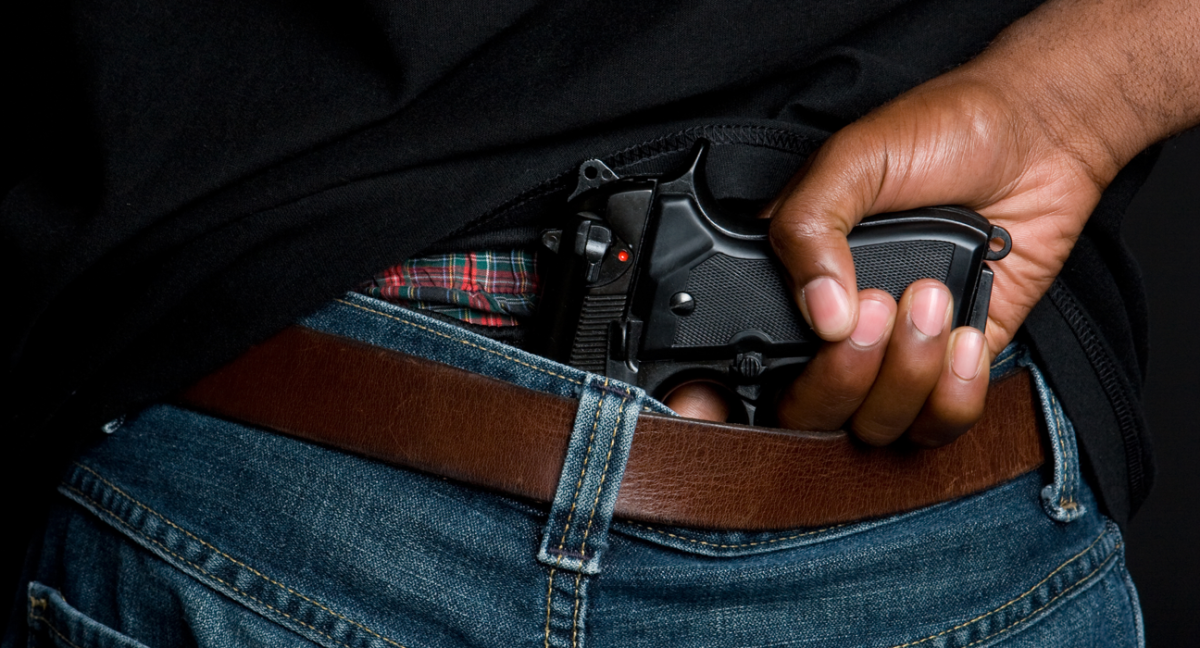Republican Representative Barry Ivey passed his first bill in the Louisiana House last week, and the focus was not on the bill’s text, but on a glittering, slinky-covered bib he wore, made by fellow legislators to highlight his inexperience.
That’s pretty fun. Except if you consider the Legislature doesn’t have its act together and the bill proposed less stringent paperwork for concealed carry weapons — both negatives in my book.
I appreciate that the legislators can enjoy having a new member introduce his first piece of legislation. It must get boring retreading the same ground on every issue and never quite coming to a satisfying resolution.
But as heartwarming as it is to realize that our representatives have some crafting flair, maybe they should get back in touch with the real world.
Day after day, they argue about statewide budget cuts, gun laws and education policy, sitting around and hearing routine rants from viewpoints they resolved never to indulge.
Arguably, this forced discussion is one of the best things about democracy, but it’s still a job and creates a clique-dominated community like any other.
Everyone pigeonholes themselves based on interests. Those addicted to Twitter tend to hang out with similarly minded individuals, and those who couldn’t care less about the nation’s goings-on enjoy their time spent with others whose heads are stuck in the sand.
The Legislature is similar, and it’s less than comforting to think about this.
It may be the least conducive environment to broadening backgrounds and accepting differences, because despite the claims that government employees hold polarized opinions on issues, there is still an overarching popular view.
Maybe this is a good thing. Maybe the government ideology remaining wrapped up in itself is better for us civilians to get on with our lives.
That is, until it isn’t.
Ivey’s bill, Louisiana House Bill 265, will allow citizens to apply for a lifetime concealed carry permit requiring just a basic retraining course every five years.
The argument in favor is that the paperwork to renew a concealed carry license every five years is arduous and useless, and this new provision would streamline the process — because it’s a good idea to make it simpler for civilians to pack heat without any obvious sign thereof.
While this may seem like the perfect example of letting citizens get on with their lives, I’d argue it’s just the opposite.
Who wants it to be legally easier for more people on the streets to carry their own guns for a longer period of time? Are we planning to return to a post-apocalyptic military state soon?
We don’t need this. If anything, we need tighter restrictions on who’s allowed to buy and keep guns.
Those who oppose restrictions might think they would work against law-abiding citizens being able to protect their families, but I disagree.
I’m not talking immediate effect here, but if you give greater restrictions some time to settle in the community, it will work better in the long run.
This is the effect legislators and citizens need to concentrate on — not immediate repercussions, but what remains when the dust settles and the way trends will impact the next generation.
Right now, wrapped up in the minutiae of bills’ wording and the 24-hour political news cycle, it’s difficult to have that forethought, but it’s a representative’s job.
They pledge to have their constituents’ best interests at heart, and that doesn’t just mean when it makes them look best politically.
All the time, they need to think about the future, think about the present and consider all possible outcomes.
Sure, this is a slow process, but what is government if not slow?
At least in HB 265, there are provisions for continuing gun education, which did not exist in the bill’s first iteration.
Thanks for that, legislators. You’re making progress.
Megan Dunbar is a 19-year-old English junior from Greenville, S.C.





